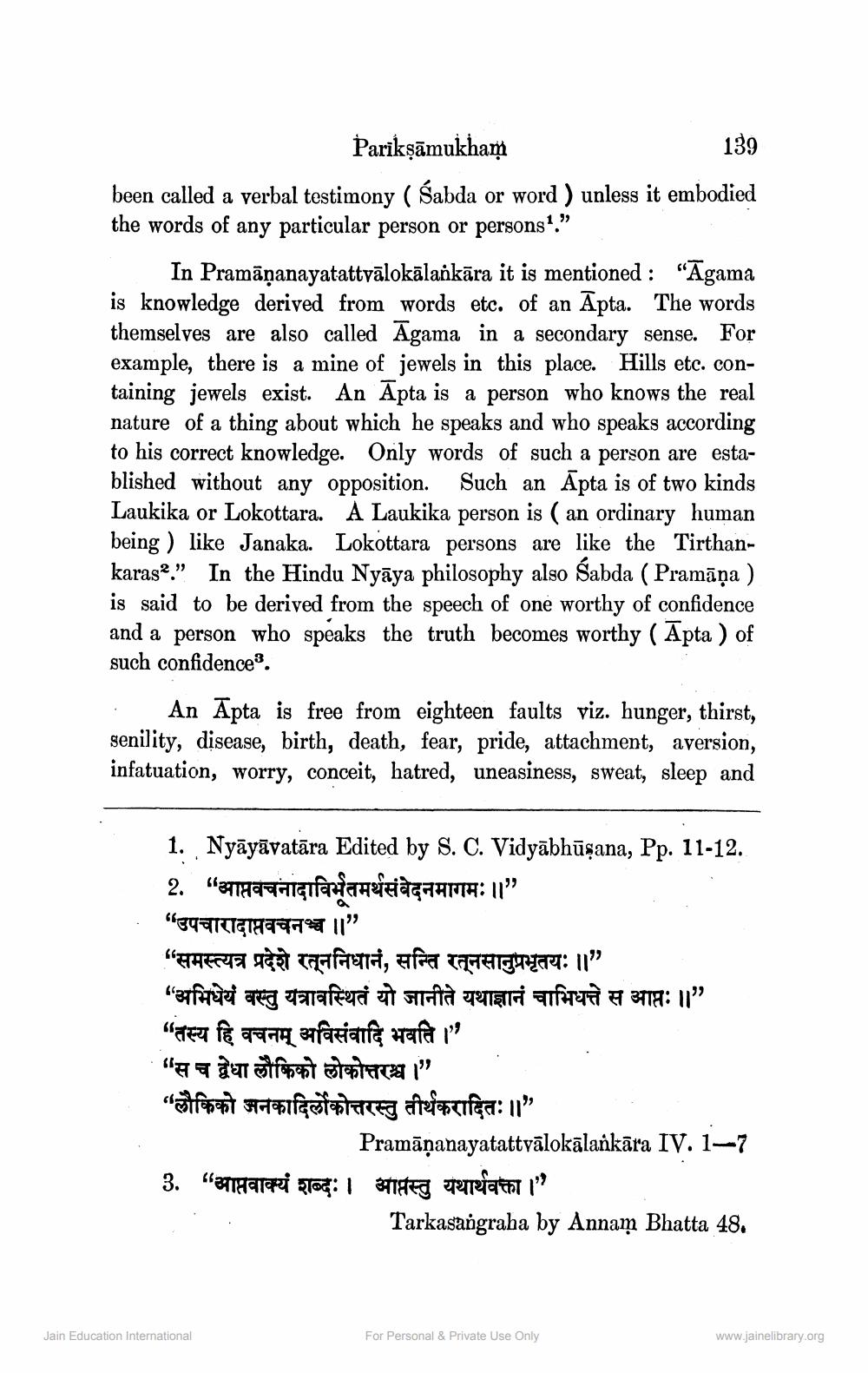________________
Parikṣāmukham
139
been called a verbal testimony (Śabda or word) unless it embodied the words of any particular person or persons1."
In Pramaṇanayatattvālokālaṁkāra it is mentioned: "Agama is knowledge derived from words etc. of an Apta. The words themselves are also called Agama in a secondary sense. For example, there is a mine of jewels in this place. Hills etc. containing jewels exist. An Apta is a person who knows the real nature of a thing about which he speaks and who speaks according to his correct knowledge. Only words of such a person are established without any opposition. Such an Apta is of two kinds Laukika or Lokottara. A Laukika person is (an ordinary human being) like Janaka. Lokottara persons are like the Tirthankaras?" In the Hindu Nyaya philosophy also Śabda (Pramāṇa ) is said to be derived from the speech of one worthy of confidence and a person who speaks the truth becomes worthy (Apta) of such confidence3.
An Apta is free from eighteen faults viz. hunger, thirst, senility, disease, birth, death, fear, pride, attachment, aversion, infatuation, worry, conceit, hatred, uneasiness, sweat, sleep and
1. Nyāyāvatāra Edited by S. C. Vidyabhūṣana, Pp. 11-12. 2. “आप्तवचनादाविर्भूतमर्थसंवेदन मागमः ॥”
"उपचारादाप्तवचनश्च ॥"
" समस्त्यत्र प्रदेशे रत्न निधानं, सन्ति रत्नसानुप्रभृतयः ॥”
"अभिधेयं वस्तु यत्रावस्थितं यो जानीते यथाज्ञानं चाभिधत्ते स आप्तः ।। "
" तस्य हि वचनम् अविसंवादि भवति ।"
" स च द्वेधा लौकिको लोकोत्तरश्च ।” “लौकिको अनकादिर्लोकोत्तरस्तु तीर्थकरादितः ॥”
Pramāṇanayatattvālokālaṁkāra IV. 1-7
3. " आप्तवाक्यं शब्दः । आप्तस्तु यथार्थवक्ता ।"
Jain Education International
Tarkasangraha by Annam Bhatta 48.
For Personal & Private Use Only
www.jainelibrary.org




